15 Self-Guided Reading Responses For Non-Fiction Texts
What is the author’s position on a debatable topic from the text? How do you know? What evidence from the text can you cite?

What is the author’s position on a debatable topic from the text? How do you know? What evidence from the text can you cite?

During meaningful conversations, students are forced to be accountable for positions, to listen, and to analyze opposing perspectives & ideas.
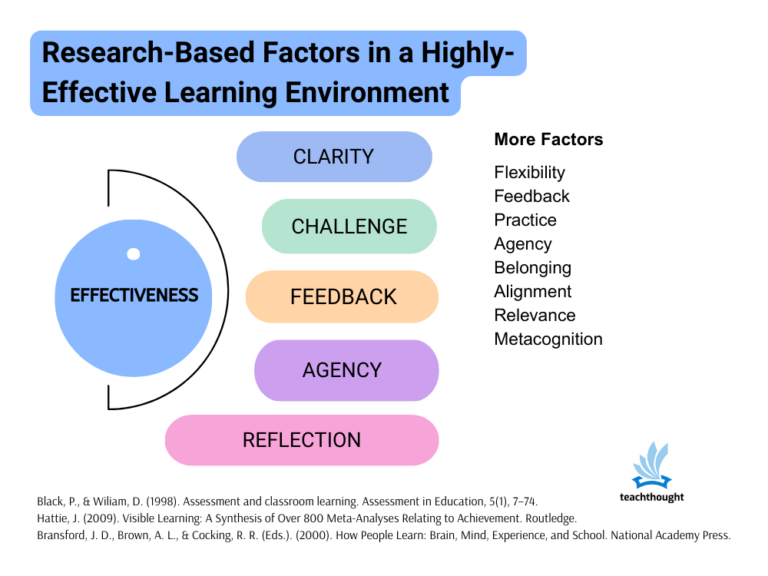
In a highly effective learning environment, there are opportunities for students to revisit old thinking while grappling with new ideas.
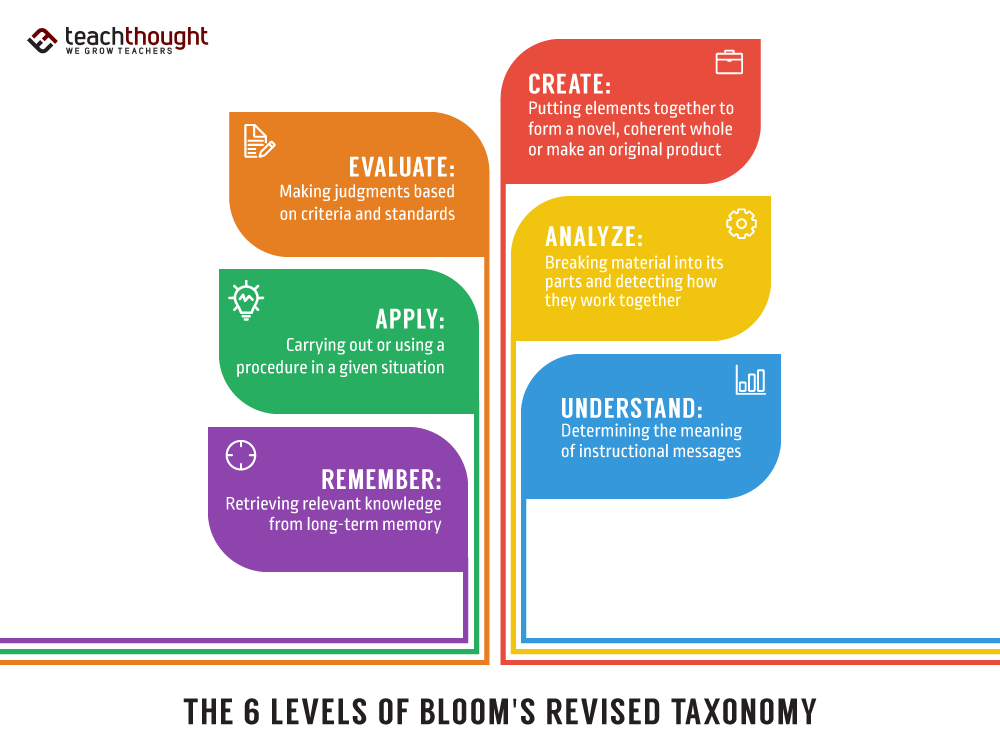
Bloom’s Revised Taxonomy is an update that, among other changes, revised the language and hierarchy of the Cognitive Process Dimension.
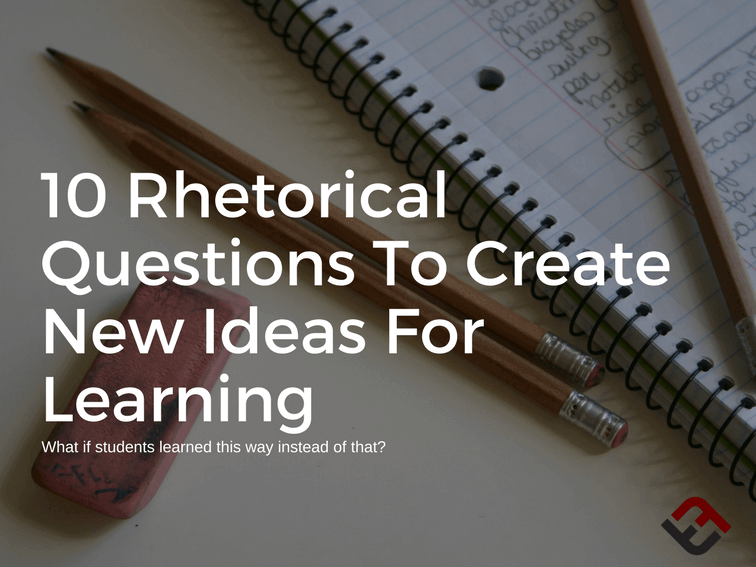
I’m not saying any of these ideas are good—or even the least bit viable. Or that they wouldn’t be detrimental. I’m just wondering what would happen.
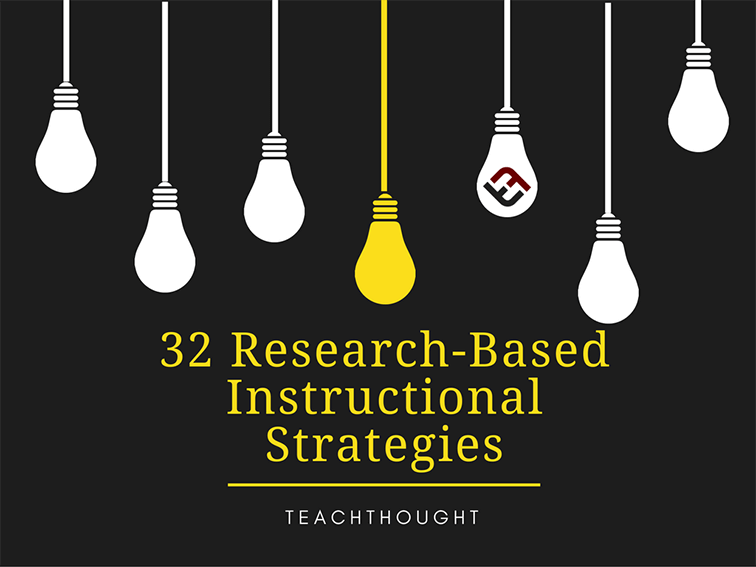
These 32 research-based instructional strategies include Setting Objectives and Reinforcing Effort/Providing Recognition.
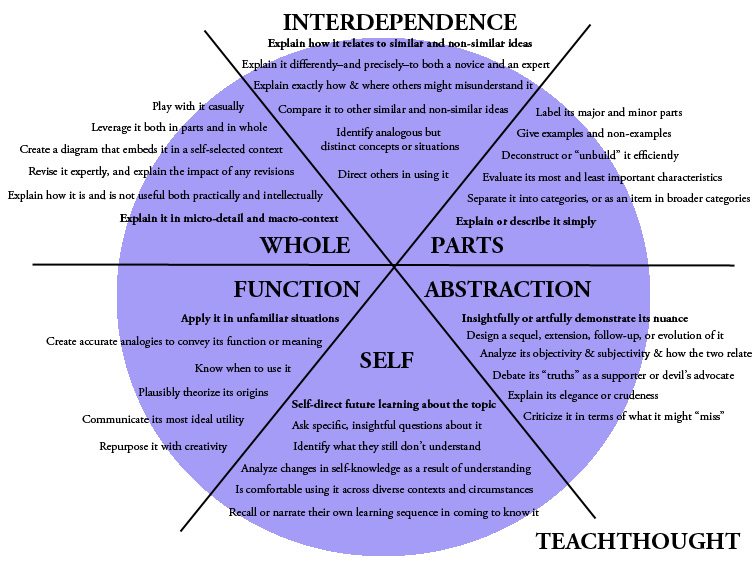
The Heick Learning Taxonomy can be used to guide planning, assessment, curriculum design, and self-directed learning.

The most important critical thinking skills include analysis, synthesis, interpretation, inferencing, and judgement.
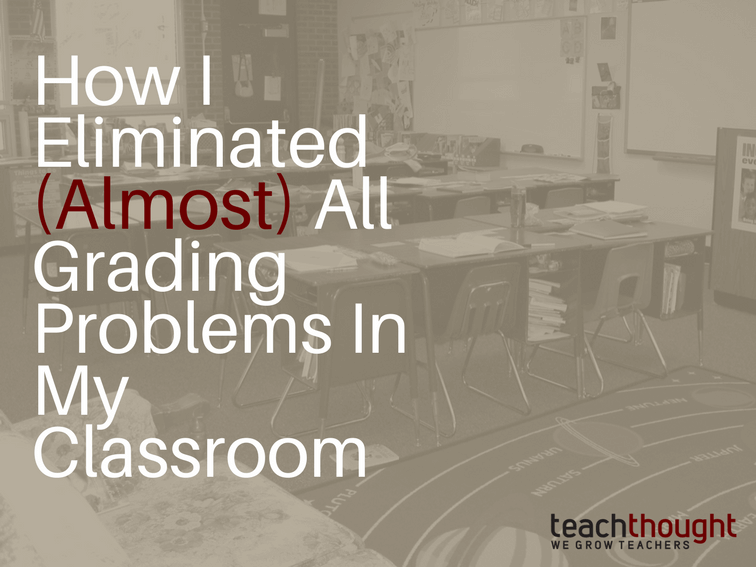
Grading problems still surfaced, but with a system in place, it was easier to identify what went wrong and communicate why to students.

How would it change the learning process to start with a tone of humility? To clarify what can be known, and what cannot?
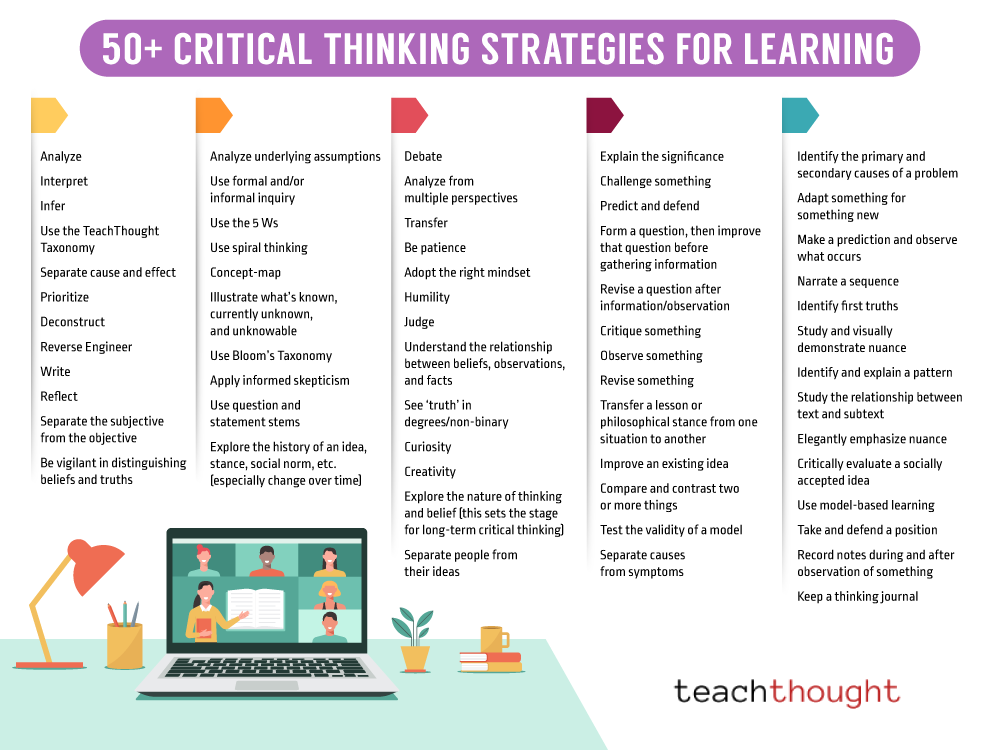
Critical thinking strategies often employ multiple data sources and perspectives in pursuit of understanding.
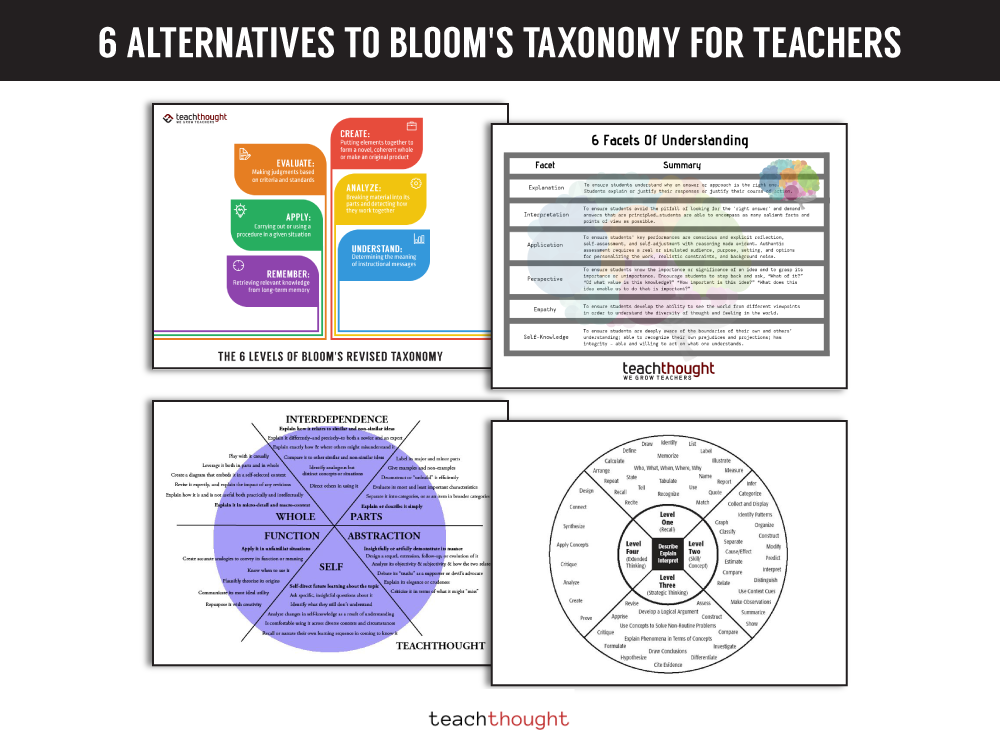
Why might you need alternatives to Bloom’s Taxonomy? While wonderful, it neglects important ideas that see the whole child.
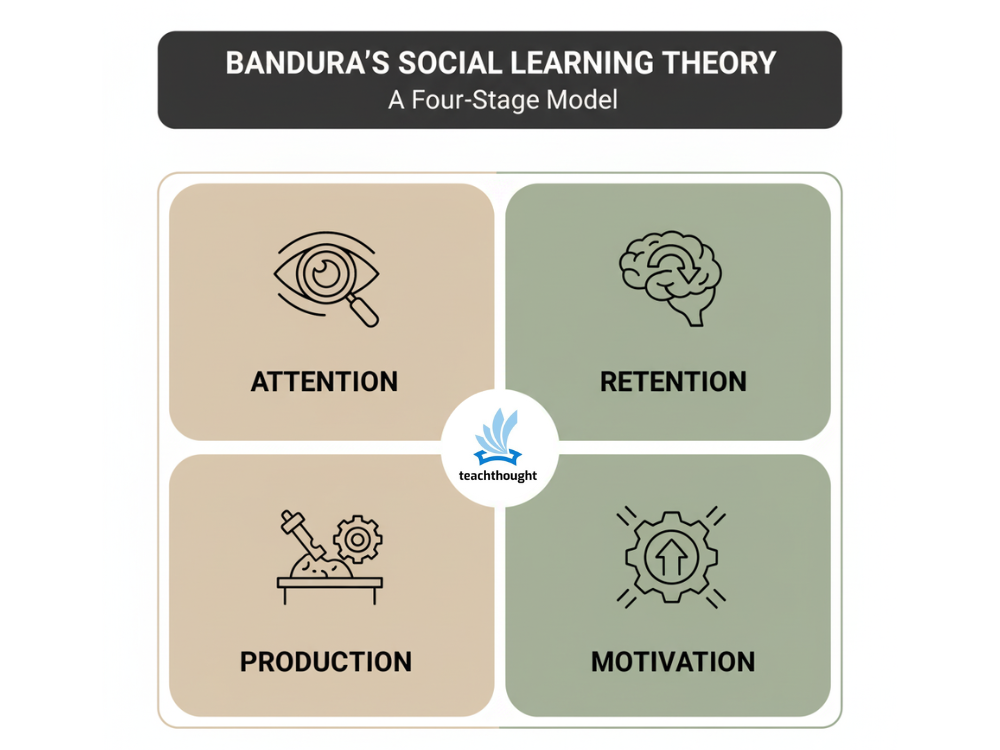
Bandura’s Social Learning theory explained that children learn in social environments by observing and then imitating the behavior of others.
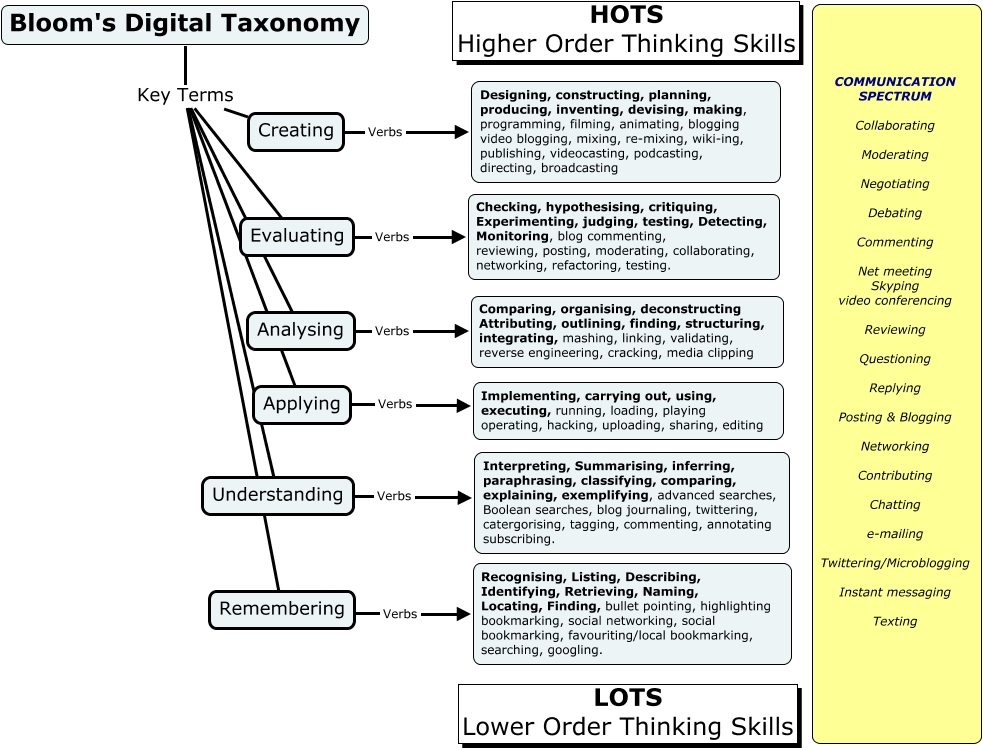
This Bloom’s Digital Taxonomy helps teachers evaluate and design digital tasks like ChatGPT use, blogging, podcasting, and more.